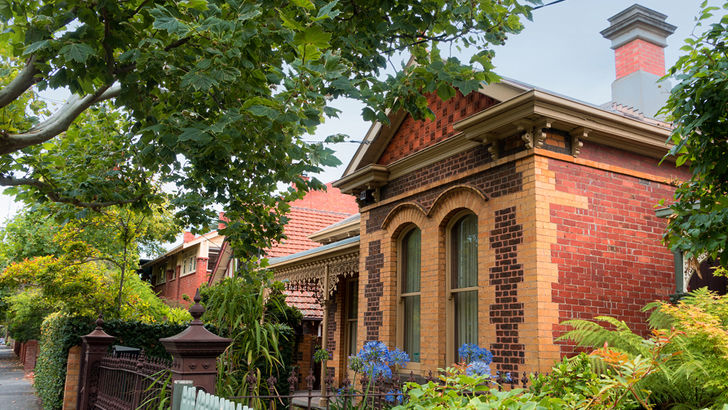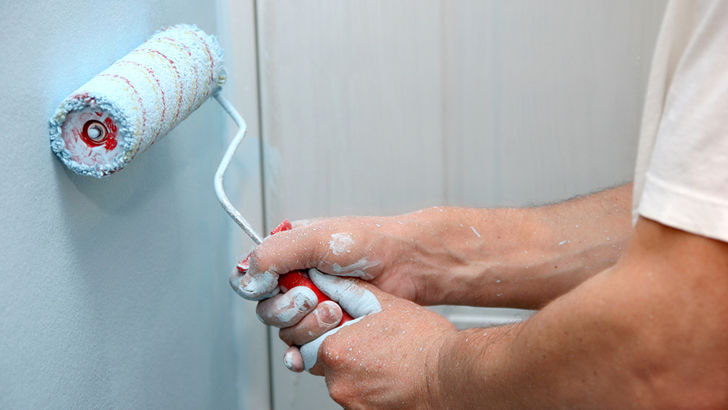How to flip property for profit
By Philippe Brach
Property flipping can be an effective way of making money, but is it as easy as it sounds?
The increasing popularity of flipping is in no small part attributable to the success of TV shows about residential renovations, and it seems that they keep getting more popular over time. Mind you, they make it look like any average person with a bit of personality can make heaps of money in no time with limited outlay and no specialised skills.
Channel 7's The Aussie Property Flippers last year featured a property in Sydney's eastern suburbs that was bought for $780,000 in early 2016, renovated for $80,000 and sold for $1.065 million, all in 10 months.
Of course, the key to success is more about the numbers than the hype of the TV shows. Don't get me wrong - it may be a worthwhile strategy but there are many variables to attend to before you can make it a profitable venture.
Let's consider what is involved in the process: the physical and mental effort, the length of time renovating can take, financing, participating in and maintaining a family at the same time, probably working full time and so on.
Here are factors that should be resolved before embarking on a full-scale project:
How to finance a property flip
Unless you have several hundred thousand dollars lying around you will need bank finance to purchase the property. Even if you have sufficient funds for a healthy deposit it's likely that at least part of the initial acquisition amount will need to be financed.
This raises the matter of how that finance is to be repaid when there is no income from the property during the renovation period. So you need to consider where these monthly repayments are to come from and ensure that cash flow is sufficient to cover the entire length of the makeover.
If you own your own home (mortgaged or not), is there enough equity to extract for the initial purchase, or even for the deposit? If you have only the deposit, then the loan repayment scenario will still apply.
Once the purchase is completed and work is ready to commence, how will the renovation be financed?
It is extremely important to create a budget and time-line plan in advance, detailing when the major parts of the renovation will take place and funds will need to be paid.
Discovering, part of the way through, that you have to pay large sums of money for materials or tradesmen simultaneously can create a cash flow problem and add unnecessary stress and worry, possibly even causing the project to stall through lack of immediately available funds.

Finding a property suitable for flipping
Most people think that they need to target the right type of dwelling in a given suburb.
In Sydney's Paddington, terraced houses are likely to be successful candidates and older apartments would be the main target in Potts Point. However, the exact type of dwelling you buy - whether it's a freestanding house, townhouse, unit or duplex - isn't as important as the property's potential.
You need to assess each property on a case-by-case basis. Of course, strata-titled units have more constraints to deal with, as you need approval from the strata/body corporate manager, but they can still be rewarding to renovate.
Analyse your own skill set. Do you have the knowledge and experience to assess an older property and understand what needs to be done to successfully add substantial value to it? Renovations and property make-overs stretch from cosmetic improvements - bringing only small returns on investment - to full-blown overhauls. Assess where your level of expertise sits and be realistic with what you can achieve when sourcing a likely property.
To make good money in renovating, you really need to know which option to take in which areas.
For example the closer you are to a CBD, the more involved and expensive a renovation will be. This is understandable as property prices will be higher and you are more likely to be involved in much older properties. Paddington, Woollahra and Bondi in Sydney, or Windsor, Carlton and South Yarra in Melbourne, would be in this category.
The further you are from a CBD, the less extensive renovations tend to be, because the market is primarily driven by investors in search of cash flow, meaning they also tend to keep the properties after renovation. In Sydney's south-west, suburbs such as Liverpool and Campbelltown are popular for cosmetic renovations, granny flats and adding new rooms.
If your career is not in the building/construction business, it is worth turning to an expert. Consider whether you should consult a professional in the industry before committing to a project that is not your primary expertise. It could be a costly, time-consuming and ultimately fruitless journey if you take on something you are unable to complete.
It is essential to research the property location to understand the local demographic, current house pricing, sales within the area, desirability and so on. Let's face it, once the renovation is complete, you want to ensure it doesn't sit on the market for any length of time. Time costs money and you want to realise the profits as soon as possible.
The logistics of being a property flipper
Are you going to sell your own home and live in this property while working on it? If you're single or a couple that might work but if you have a family it's unlikely to be an option.
If you are time poor you may resort to engaging a project manager. This will add a significant cost to the project but will ensure you have a professional overseeing every aspect. It also gives you someone to chase if things run behind schedule.
However, you may decide to manage it yourself and engage tradesmen as needed. This reduces costs but adds to your workload as you may need to be available at short notice during normal working hours. That could become a problem if you continue to work full time and need to liaise with onsite workers.
If you continue to live in your own home, how easy is it to continually travel between the two locations while the renovation is taking place? What seems like a fantastic investment opportunity may not appear so rosy when you are travelling an hour or more in each direction in the winter months! And this is a consideration easily overlooked.

The costs of flipping properties
Many renovation experts dictate that you should not spend more than 10% of the current value of the property on renovations. So the most common mistake - by a long shot - is overcapitalising. This is especially true when you are buying a cheaper property, as your budget on renovations will have to be limited.
This is a business transaction, so create a budget, investigate availability and pricing of items and tradesmen and endeavour to work within your clear financial boundaries. Blowouts will eat into your financial return and can make the project unprofitable.
Create a work time-frame schedule. Whether doing the job yourself or engaging others, costs can seriously escalate if the project runs significantly over time.
While there is no hourly pay rate for your own time you will need to factor in amounts due to anyone else working on your behalf.
State of the market
Flipping works best in a rapidly rising market. This allows for small mistakes to be covered by the growth in the market. However, it is also harder to find good properties as a lot more people have the same idea as you!
The big risk, of course, is what happens if the market turns while you are renovating and you can't then offload the property at the price you want?
In a cooling market, a better strategy is to buy and hold the properties you renovate. This means that your project may be different as you plan to keep the property for the long term.
Your budget should include a cash-flow projection of how much the property is going to cost to run and the rent you will collect.
Other considerations
If you decide to undertake the renovations yourself, will you continue your normal occupation at the same time? This would certainly help with financing the project as it may aid in securing further loan funds.
However, how much time and energy will you be able to give to the job? Will you spend every weekend and evening on it and how will that fit with your completion schedule, lifestyle and family commitments?
If you project-manage yourself, be aware that there are a number of regulatory steps to be taken, forms to complete, surveys to be undertaken and approvals sought throughout the renovation period, depending on the level of work you are undertaking. Do you have an understanding of these important aspects?
If you decide to give up work and concentrate on the renovation full time, that would enable the project to be completed quite quickly but there is still the question of financing the costs as you will have no income.
Some of these issues may not apply to you: perhaps you're a builder by profession, have no family to consider and can spend a substantial amount of time working on the property without it affecting others, or you may have a partner who is eager to be involved.
Renovations, upgrades and home improvements come in many forms: a simple paint job, new interior/exterior fittings, new bathrooms and kitchens, or a full overhaul including knocking out walls and rebuilding sections and extensions.
So if you decide to go down this route, choose something that fits with your strategy and is achievable both in terms of workload and finances: a project you can jump into, work on, finish in a timely manner and realise the rewards. It's not an idea to take lightly and you should be prepared for unexpected hurdles, delays and cost over-runs.
Consider the alternatives
As it becomes more and more difficult to ferret out the ideal property, some renovators are looking at venturing into areas with less competition, such as developing and subdividing. This is high-risk investing.
You do not control timing as you are reliant on various authorities to give you the necessary approvals, and it is harder to control costs - overall there are too many variables.
You could also consider the old-fashioned way of making money from property: buy a new or near-new property and treat it as a passive investment. It is not as sexy and tempting as what the reality TV shows promote, and it takes time, but it is a tried-and-tested strategy. It's certainly a lot less stressful.
Get stories like this in our newsletters.


